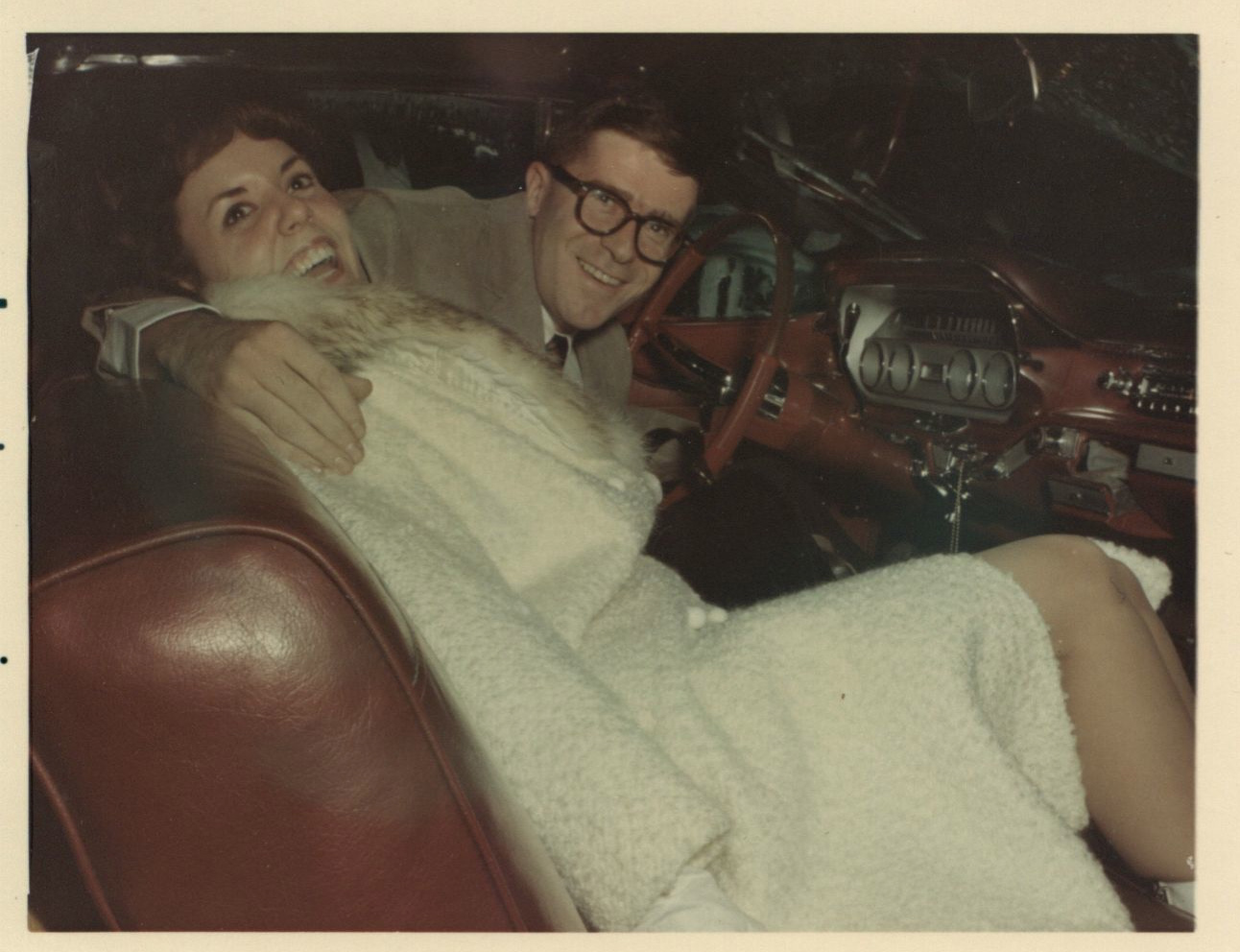Embrace your clutter
Death to tidiness!


A free daily email with the biggest news stories of the day – and the best features from TheWeek.com
You are now subscribed
Your newsletter sign-up was successful
If Marie Kondo, world-famous neatness guru and best-selling author of The Life-Changing Magic of Tidying Up, came to my apartment, I imagine she would stare aghast at its horrors, frozen and unable to move, transfixed by my tiny coffee table that's piled high with books, magazines, my to-do list, and, at the moment, two different glasses of things I'm drinking. Also, a damp paper towel because those glasses sweat and I don't want the water droplets to damage my pristine new computer.
Once Kondo managed to unfreeze herself from the scene, she probably would not take the opportunity to stay longer, and in fact would run from my house — perfectly nicely and non-judgmentally (she seems quite pleasant!) — and perhaps out of Brooklyn entirely. Or, more likely, given the many who embrace her neatnik theories, she would jog cheerily down the block to someone who does appreciate the magic of tidying up. A lot of people do!
For me, it's a different story. While I adore a clean house, from Pine Sol smell to a spic-and-span bathtub to the lack of old crumbs on the floor, I do not care one bit about "tidying up." I love my clutter, and refuse to be shamed for it.
The Week
Escape your echo chamber. Get the facts behind the news, plus analysis from multiple perspectives.

Sign up for The Week's Free Newsletters
From our morning news briefing to a weekly Good News Newsletter, get the best of The Week delivered directly to your inbox.
From our morning news briefing to a weekly Good News Newsletter, get the best of The Week delivered directly to your inbox.
Part of my rage against "tidying up" stems from the word "tidy," which seems oppressively gendered as well as more twee than the man in the fedora who keeps playing his banjo across the street from my apartment each morning (I would love Marie Kondo's thoughts on him). But the other part, the bigger part, of my lack of appreciation for tidying — i.e. removing clutter from the home, putting things in orderly, reasonable places, and, in Kondo's world, doing deep cleans involving throwing away stuff that doesn't evoke a spark of joy in you — is because while contemporary society impresses upon us the value of minimalism as a moral and good act in itself, I disagree.
Not that minimalism is bad. Two cheers (three would be excessive) for that dude who threw out all his stuff and now only owns 12 plates and a single pair of socks! In terms of making more environmentally sound choices in life, and saving our world for posterity, and not filling all the landfills that our children will be forced to build homes on that will then be sucked down by sinkholes, and, also, yes, in a staunch protest against grotesque maximalism (see Candy Spelling's gift-wrapping room), I am all for slowing our roll in the buying crap department. Sometimes, yes, minimalism is good. But at other times, enforced minimalism is oppressive. We live, we purchase things, we use them, we surround ourselves with that which we love, and that which maybe we don't love but which is still entirely usable. Isn't that part of being human? In my case, my surroundings include a lot of books and sweaty drink glasses. What's the problem with that?
I grew up with a mother who grew up with a mother who never wanted to throw anything away. One time we found an ancient accordion in my grandmother's closet (among any number of other things, boxes full of letters and photographs and clothing that would never be worn again). Where had this accordion come from? Who ever played the accordion in our family? No one knew! But it was a great find, one that Marie Kondo would surely not have approved of.
Because my grandmother liked clutter, my mother hated it, and was always asking, did I really need that 370th piece of old wood that sort of looked like half a heart that I picked up and named Millicent and planned to keep forever? Perhaps this sort of thing skips generations.
A free daily email with the biggest news stories of the day – and the best features from TheWeek.com
But clutter can be good! In a study from the University of Minnesota, "disorderly environments" were found to "encourage breaking with tradition and convention" — working in a messy room helped people come up with new, creative ideas. Indeed, clutter has long been said to be helpful to the thought processes of creative people, even if it was only creative people saying so. (Even the enviably neat Gretchen Rubin keeps a junk drawer!)
I find truth in this. As a person who likes items and sees in them life and stories, it is tremendously hard for me to part with them. Somewhere in my brain there is real sentiment attached to them, along with a fairly reasonable argument that I need them around simply for the stories. That Beanie Baby from the guy I dated in my twenties who turned out to owe me $900 in the end? Well, sure, I'm going to hide it in a drawer, but I still want it. More than anything else, more even than justifying the useless purchase of a Beanie Baby, I want to remember all of my stories.
Why did we become so obsessed with ridding ourselves of clutter (which, unless you're inviting someone over or live with persnickety roommates, is really for your eyes only), anyway? In an enormously materialistic society, it makes sense that "tidying" would seem to offer a kind of answer to the world's problems — not only a statement against gratuitous excess, but also a way to exert control in a world gone mad, where, as much as we try, we have very little control over much of anything. There is a kind of freedom in self-assuredly ridding ourselves of things. This sort of anti-clutter control theory also stands in stark contrast to the other huge thing in many of our worlds: the internet, which you can never tidy up, where only a tiny portion of anything is bound to bring you joy (the more common currency online seems to be rage, though it too is a messy sort), and where nothing really gets thrown away ceremoniously (the opposite usually occurs in the rare occasions when things are deleted from news sites). If clutter surrounds us on the internet, maybe that's why Kondo is so widely appealing — you can clear the clutter out of your actual home, if not from the websites you look at in your free time. Or, alternatively, you can downsize the clutter of your internet with a joy-based proposition of fewer hate reads, less time on Twitter, and more time among your favorite things, or people, at home.
I'm not saying that Kondo is wrong for all (clearly, many think it's quite right). And her messages are compelling! As she writes, "When you put your house in order, you put your affairs and your past in order, too… you can see quite clearly what you need in life and what you don't, and what you should and shouldn't do." Which sounds nice. Don't we all want this?
Well, yes and no. Having clutter around doesn't mean my life isn't out of order, or that I don't know what I should or shouldn't do. And vice versa. (And knowing what you should do and behaving in a way you should are two different things, altogether.) Personally, I feel inspired by not knowing, exactly, by embracing at least a little bit of the inherent chaos in life. A million of my own personal stories surround me, even if they aren't neatly arranged with their spines facing the right directions, even if some of them don't fit, even if many of them should probably have been left on the stoop long ago. And that brings me joy — which is, I suppose, the root of what Kondo is attempting to do for people in the first place. But like my clutter, I'm defiant: There's no one-size-fits-all technique, just like there's no one book that can fix all of our lives. What exactly joy means, and how you need to make it happen, depends on you.
Jen Doll is the author of the memoir Save the Date: The Occasional Mortifications of a Serial Wedding Guest. She's also the managing editor for Mental Floss magazine and has written for The Atlantic, Esquire, Glamour, Marie Claire, The Hairpin, New York magazine, The New Republic, The New York Times Book Review The Village Voice, and other publications.
-
 How to Get to Heaven from Belfast: a ‘highly entertaining ride’
How to Get to Heaven from Belfast: a ‘highly entertaining ride’The Week Recommends Mystery-comedy from the creator of Derry Girls should be ‘your new binge-watch’
-
 The 8 best TV shows of the 1960s
The 8 best TV shows of the 1960sThe standout shows of this decade take viewers from outer space to the Wild West
-
 Microdramas are booming
Microdramas are boomingUnder the radar Scroll to watch a whole movie
